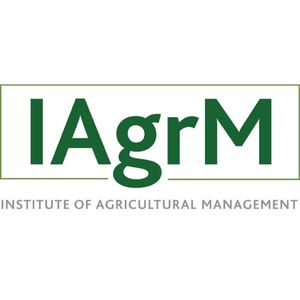
Food Consumer Trends post covid in a recessionary environment...
As members of the Institute of Agricultural Management, we joined their most recent 60-minute CPD for insights into consumer food trends at this turbulent time. The hour provided some great insights from guest speakers Joe Shaw Roberts, Kantar and Natalie Smith, Head of Agriculture at Tesco and we’ve summarised some of their findings below.
Consumer Behaviour
We’ve seen grocery spend and takeaway go up over recent years due to the pandemic, and this is now expected to continue for the next few years – staying in is the new going out. Grocery inflation has hit it’s highest point, and it’s expected that 1 in 4 households are struggling, and so shoppers are going through big behaviour changes.
Both Kantar and Natalie at Tesco presented that by the end of Q4 for 2022 inflation was flattening, at 12%. However there has only been a 3% in spend, so where is the 9% in between?
It’s expected that shoppers are;
· Buying fewer products
· Trading down - Choosing cheaper products
· Trading in – reducing indulgent occasions
· Making simpler meals with fewer components
Four of the most effected categories that are experiencing the biggest differences between household growth and volume per household growth are;
· Berries
· Cucumber
· Melons
· Potatoes
Shoppers are looking for alternatives that are more suited to their budgets, so alternatives to berries are bananas, apples / pears. Retailers need to understand how consumers are making these buying decisions to keep demand.
38% of shoppers now work from home, and so create more home-made meals. There has been a drop in online grocery shopping since covid, but there is still an uplift from 2019 and it’s expected that it will continue to grow and we will still pay for convenience. It’s also been noted that supermarket footfall has declined, and people tend to do one large grocery visit/shop now rather than multiple. Are these the effects of the pandemic that are staying with us?
Sustainability
Natalie Smith, Head of Agriculture at Tesco shared how their team works and their main objectives of current. The team sits within the function of sustainability and creating long term sustainable supply chains. They manage relationships with suppliers and work with trends. Their main goals are;
· To ensure all suppliers meet Tesco objectives and values, for example meat quality
· Reduce their impact on the environment – 55% shoppers are still conscious of the environment
· Manage relationships and use data to support the supply chain and drive changes.
Some interesting points were that of organic produce, and how food waste is a rising trend in trying to combat the issue. 15.8% of grocery spend is going in the bin and fresh fruit & veg contributes to 40% of all food waste.
After the recession in 2008, organic has been building back up in popularity, but now money is getting tighter Tesco are researching to understand the importance of organic now, and why it is bought. There is thought to be a shift in the Good, Better, Best ranges in the next 12 months.
Cost of living crisis
Tesco is trying hard to invest in their prices across the supply chain, they currently have locked prices for over 1000 SKUs until Easter.
The Clubcard provides additional value and rewards loyalty, not surprisingly card holders have increased and the initiative has coincided with best market share Tesco has seen in years.
Meat, Fish, Poultry & Egg are experiencing a 5-year low volume wise, with inflation rising we’ve seen a third of people cut their spending and remove these items from their meals on a regular basis. Discounters such as Aldi are doing well and placing them within the big market players, but how can the industry make the increase in cost work long term?
British is important and Tesco will continue to invest in the supply chain to achieve that. They have 5-year contracts with British egg suppliers and are increasing in British pigs.
We’re sure many of our clients are feeling the effects of these points shared and 2023 will be an interesting year. Thankyou to IAgrM, Kantar & Tesco for the insights.
